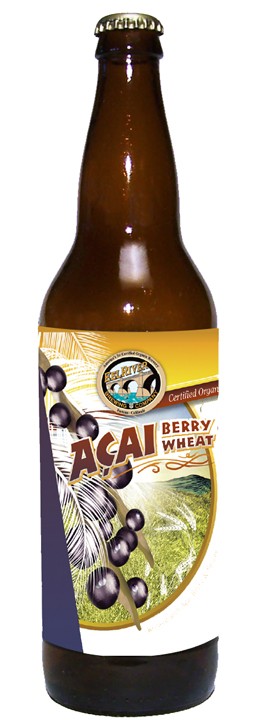A merica: Meet the acai berry, the newest rock star among high-end exotic health foods. The pea-sized fruit (pronounced “ah-sigh-ee”) grows naturally in great, heavy clusters on jungle palms in the Amazon rainforest, where indigenous cultures have reportedly eaten the berries for centuries. Literature cites the many health benefits of the acai as an attraction to those who have pursued it; it’s a source of energy, fiber, vitamin E, iron, omega acids and antioxidants, those incorrigible yet mysterious compounds we all love. The berry is also said to assuage cholesterol levels, boost prostate health and slow the effects of aging, and it has been billed as the “fountain of youth.”
The acai berry was introduced to the Western world in the 1990s. It has since made a strong presence in teas, smoothies and juices, but in September of 2007 the acai berry came to full fruition and found its way into booze. VeeV Acai Spirit is a 60-proof, deliciously perfumey liqueur draped with the essence and elements of the acai. Its makers have wisely never claimed that their product is necessarily healthy, but the unrefined berry is added to the grain alcohol after distillation and some of the acai’s supposed anti-aging powers likely remain in the drink.
Thirteen months later, another acai tippler has appeared: Eel River Brewing Company’s Organic Acai Berry Wheat. The new brew’s recipe has been a year in the making, according to brewery president Ted Vivatson. Test batches went on tap at the Fortuna brewpub and took criticism from patrons until a satisfactory product was achieved this summer. The beer is a straw-colored, atomic fruit bomb brewed with undisclosed loads of acai berries, a “proprietary blend” of more ordinary berries and a balance of pomegranate juice. More traditional ingredients like grain malt, hops and even a little bit of alcohol (4 percent ABV) give this beverage the leverage to retain its status as a beer.
Like VeeV, Eel River takes a cautious approach to advertising its acai beer as a health food. “I don’t like to make health claims when it comes to ale,” says Vivatson. “I just make this beer because it tastes good, and I don’t want people to go drink three cases for the health benefits.”
Yet the in-print marketing for the beer has touted its “high antioxidant properties” as reason to “drink on!” We’re not getting any younger, so it’s worth a try.









